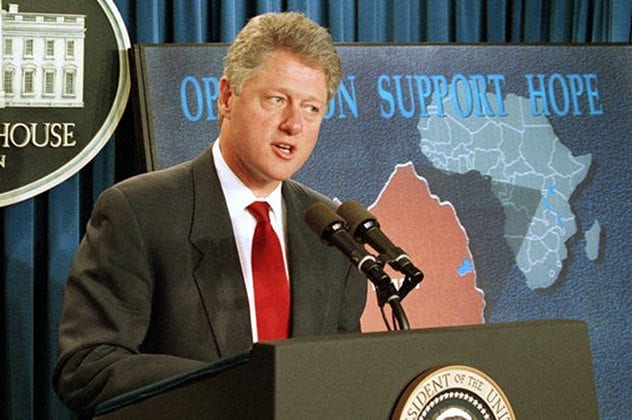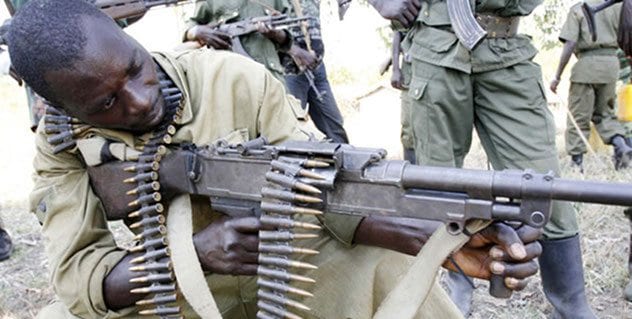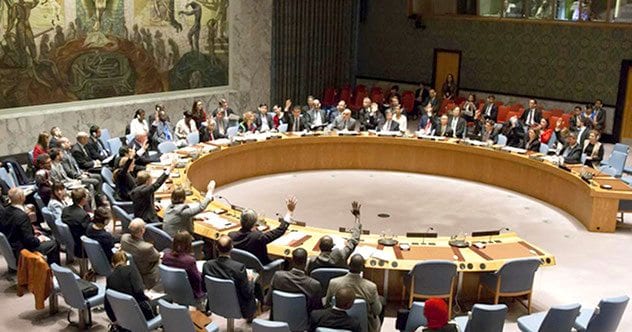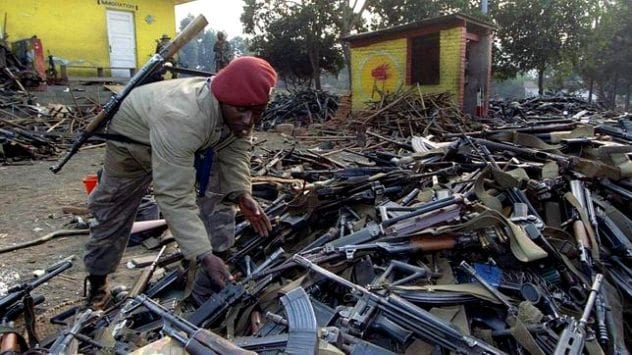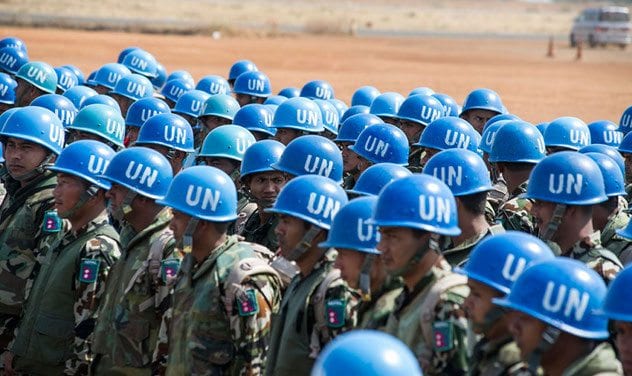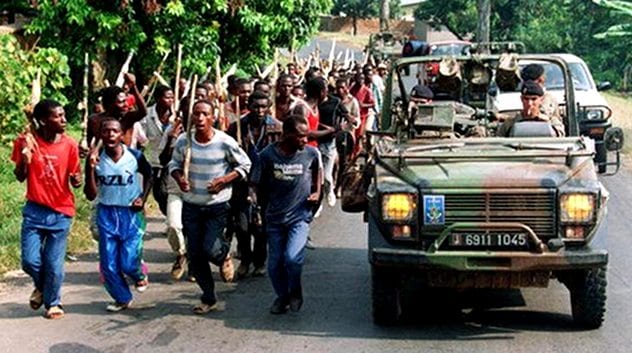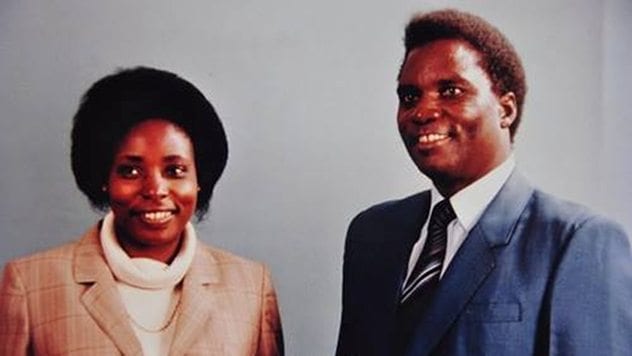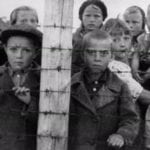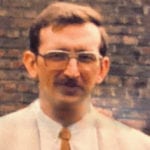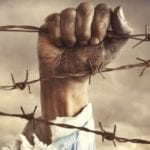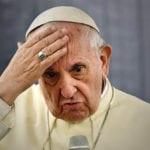The whole world watched as we failed to stop a genocide—but that was only the tip of the iceberg. The dark, hidden secret of the Rwandan genocide, though, is that the nations of the UN did not just fail to take action. By selling weapons, and deliberately blocking international assistance, nations around the world helped Hutu extremists commit genocide. Some did it for money, and some did it for politics—but they did it. People around the world actively helped make sure a genocide happened.
10The White House Knew the Genocide Was Coming
Bill Clinton visited Rwanda after the genocide, before a crowd of Rwandans, he expressed his regret over not having done more. He justified his inaction, though, by telling the crowd that he “did not fully appreciate the depth and speed with which you were being engulfed by this unimaginable terror.” Declassified documents that were sent to the White House, though, tell a different story. The US had more than just an inkling that something bad was going to happen—they knew for a fact that the Hutus were planning the genocide before it started. Sixteen days before the killings began, Bill Clinton was notified that the Hutus had planned a “final solution to eliminate all Tutsi.” He received regular reports on it, each one using the word “genocide” to describe their plan, and he was given details that, even in retrospect, were incredibly accurate. The US knew exactly what was going to happen more than two weeks before it started, but they made a conscious decision not to get involved. Rwanda, they decided, had no value to American interests. “Whether we get involved in any of the world’s ethnic conflicts,” Clinton said, justifying his decision, “must depend on the cumulative weight of the American interests at stake.”
9A French Plane Secretly Sent Weapons to the Hutus
About three months before the genocide started, UN Peacekeepers caught a French plane making a secret landing at night. The plane was making a delivery to the Hutu extremists, full of weapons and mortars that would soon be put to use in the genocide. This was a direct violation of the Arusha Peace Accords that had ended the Rwandan Civil War. Members of the UN were forbidden to sell weapons to Rwanda—and yet the paperwork inside the plane made it clear that these weapons had been sent from all over the world, with companies in France, Belgium, Egypt, Ghana, and the United Kingdom all supplying weapons for the Hutu extremists. The UN Force Commander, Roméo Dallaire, reported it to his superiors and demanded an explanation from the Minster of Defense of Belgium, who he believed was behind this. He warned them that violence was coming, and asked for more peacekeepers and more power to stop it. He was told, though, not to worry about it and to let the shipment go through. No additional men were sent. Dallaire, furious, turned on one of his Belgian officers, asking how he justified working for a nation that was arming the men who might kill him. The Belgian officer replied, “Peacekeeping is peacekeeping, business is business, and the business of Belgium is arms.”
8The UN Secretary-General Sold Weapons to the Hutus
Perhaps it should not be surprising that the UN did not react to Dallaire’s warnings. The Secretary-General of the UN at this time, Boutros Boutros-Ghali, had a vested interest in the Hutu militia. Just four years before, he had secretly sent them a massive shipment of weapons. In 1990, Boutros-Ghali was the Egyptian Minister of Foreign Affairs, and he signed a deal with the Hutus promising to send them $26 million worth of weapons. In his first shipment alone, he sent the Hutus 60,000 kg (132,000 lb) of grenades, two million rounds of ammunition, 18,000 mortar bombs, and 4,200 assault rifles, rockets, and rocket launchers. To keep the arms sale secret, he had them labeled as “relief materials.” Boutros-Ghali would later justify this, saying that selling weapons was part of his job and that he did not think “a few thousand guns would have changed the situation.” Boutros-Ghali, though, was more than just a passive player. He actively fought with Egyptian President Hosni Mubarak and convinced him to sell weapons to the Hutus. When the shipment went through, the Rwandan ambassador sent Boutros-Ghali and letter of thanks. “The personal intervention of Boutros-Ghali,” he wrote admiringly, “was a determining factor in the conclusion of the arms contract.”
7The UN Blocked Investigations into the President’s Assassination
The moment that triggered the Rwandan genocide came when a plane, carrying the presidents of Rwanda and Burundi, was shot out of the sky. Two presidents were assassinated in a single shot, and the outrage over their deaths became the catalyst for genocide. It is not entirely clear who shot the plane down. Some believe that the presidents were assassinated by Hutu extremists who were afraid that they were about to take a soft line with the Tutsi. Others believe that it was shot down under orders from Paul Kagame, the leader of the Tutsi RPF rebels. When the genocide ended, the United Nations formed the ICTR—the International Criminal Tribunal for Rwanda. An ICTR team, led by attorney Michael Hourigan, started looking into who had shot down the plane and, at first, the UN supported them. But when Hourigan found evidence that suggested Kagame—who, today, is the President of Rwanda—might have been behind it, his investigation was shut down. ICTR Chief Prosecutor, Louise Arbour, ordered him to drop the investigation, terrified that any charges against Kagame would just make things worse. Years later, in 2002, a new chief prosecutor, Carla Del Ponte, took over and tried to reopen the investigation. As soon as she did, she was fired by the UN—and she is pretty sure that the governments of the US and the UK demanded her dismissal.
6The US and France Vetoed UN Intervention
As the genocide started to heat up, the United Nations Security Council met to discuss what to do. Hutu extremists were all over Rwanda’s radio, calling for the extermination of every Tutsi in the country. Thousands were dying daily—and yet the council was not allowed to use the word “genocide.” The United States and France had used a hidden veto to keep the world out of the conversation. They were threatening to veto any action in Rwanda. They would not even let the UN use the word “genocide” in any resolution that they made about it, and they used their influence to stop the UN from sending more peacekeepers. They had planned it in advance. As early as September 1993, Richard Clarke, National Coordinator for Security in the USA, wrote a memo warning that the members of the UN might vote in favor of sending more peacekeepers to Rwanda. He wanted to stay out of it. “If as USUN reports, a Rwanda resolution has 10 votes in the UNSC,” Clarke wrote, “we may have to say no with a veto.”
5Israel Sold Guns to the Hutus during the Genocide
It has been alleged that Israel continuously sent weapons to the Hutu extremists—not just before the genocide started, but even while it was ongoing. According to the accusation, Israel started sending Rwanda weapons in 1990, continued throughout the genocide, and did not stop until 1995. If this is true, it is more than just a breach of the peace accord. It would mean that Israel flagrantly disobeyed a UN embargo forbidding any country from sending weapons to Rwanda, directly violating international law. And, there is every reason to believe that it is true. Some concerned citizens filed a Freedom of Information request to see the documents that went to the Israeli Supreme Court. The Defense Ministry contacted the Supreme Court and talked to them behind closed doors, and then the Supreme Court refused the request. The Defense Ministry has not, at any point, denied that they sold weapons to the Hutus while they were conducting a genocide.
4France and the US Pulled the UN Peacekeepers Out
When the genocide began, there were about 2000 UN Peacekeepers stationed in Rwanda. It was, by no means, enough people to stop it from happening, especially since they were not allowed interfering. Roméo Dallaire repeatedly begged for more people and more power to do something about it, but he was denied. Instead, the UN pulled most of his peacekeepers out. Declassified documents make it clear that France and the US were behind it. On April 9, two days after the killing began, Richard Clarke wrote an e-mail saying, “We should work with the French to gain a consensus to terminate the UN mission.” When they started campaigning to pull the peacekeepers out, Eric Schwartz, a member of the US National Security Council, tried to warn the White House what would happen. The Peacekeepers, he told them, were protecting 25,000 people. If they were pulled out, these killings would turn into a full-scale genocide. Two days after Schwartz’s warning, the UN Security Council pulled almost every peacekeeper out of Rwanda. The number on hand went down from over 2000 people to just 270.
3France’s Operation Turquoise May Have Been Meant to Help the Hutus
In time, the UN started sending peacekeepers back into Rwanda—but that did not happen until the genocide became a full-blown media disaster that was affecting their image around the world. France set up one of the biggest relief programs. They introduced the “Zone Turquoise,” an area that covered one-fifth of Rwanda, meant to protect Rwandan refugees and try to stop the violence. There is some debate, though, over who the French were trying to protect. At this point, the genocide was almost over. Paul Kagame and the Rwandan Patriotic Front (RPF) were winning the war against the Hutus and, in less than a month, they put an end to the genocide and took control of the country. Most people in Rwanda did not think the French were there to stop the killings—they were there to stop the RPF from winning. Roméo Dallaire cursed the French presence, saying, “If they land here to deliver their weapons to the government, I’ll have their planes shot down.” The Hutu propaganda station Radio des Milles-Collines, celebrated it, telling Hutu girls to “wash yourselves and put on a good dress to welcome our French allies. The Tutsi girls are all dead so you have your chance.” The French never used their zone to arrest the people behind the genocide or to shut down the Radio des Milles-Collines that was egging it on. And, two months after they arrived, when the RPF had claimed every part of Rwanda but the Zone Turquoise, the French left.
2The French Government Trained the Hutu Extremists
Shorty after Paula Kagame and the RPF had taken over Rwanda, and the killings ended, he turned the blame on France. The French government, Kagame claimed, had a “direct role in the preparation of the genocide.” Kagame pointed to Operation Noroît, a French operation approved by President Francois Mitterand, which armed and trained Hutu fighters. Kagame claims that this went beyond just teaching them to fight. He claims that France helped provide them with weapons to carry out the genocide and even helped planned the logistics of the slaughter. Kagame claims that Operation Turquoise was set up to help the Hutus responsible for the killings escape. He even says that French soldiers covertly assassinated people who were hiding Tutsi and joined in on the rapes of the survivors. Some of the claims have not been proven—but there is no question that France trained the Hutu fighters and helped provide them with weapons. And when Bernard Kouchner, who was French Foreign Minister during the genocide, heard Kagame’s claims, he admitted that France owed Rwanda an apology. “The French soldiers never killed anybody,” Kouchner insists, but he does not deny that they played a major role in the genocide.
1France Is Protecting a Woman Called “The Architect” of the Genocide
After Rwandan President Habyarimana’s plane was shot down and the genocide began, his wife, Agathe Habyarimana, fled to Paris. French troops airlifted her out and, reportedly, gave her 230,000 Francs. It is a major issue because, according to the Rwandan government, Agathe Habyarimana may have been one of the major players who planned the Rwandan genocide. France actually agrees—the French State Council has stated that there are “serious reasons to suspect” that she was one of the key players. Kagame wanted her extradited to Rwanda to face trial there, but France refused, promising to take her through their own courts. And they did arrest her in 2010—but they let her out shortly after. Today, years after her arrest, Habyarimana still walks free. There is an international warrant out for her arrest on charges of genocide, but for as long as she stays in France, she will never see a day in prison. Read More: Wordpress
